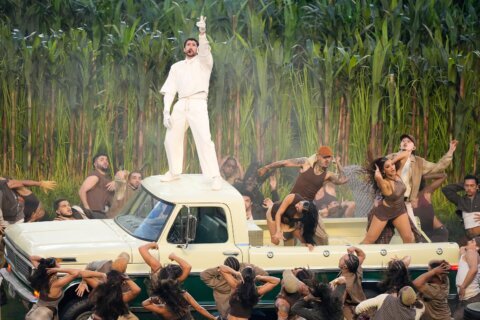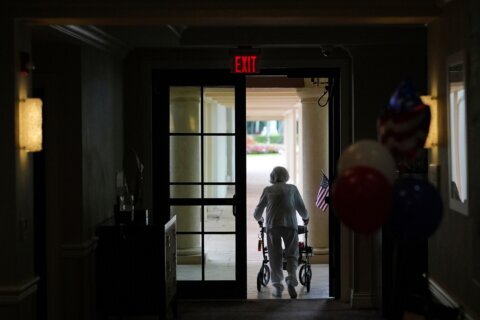After tipping back a few (more and more) alcoholic drinks during the holidays, a lot of people take part in what they call “Dry January.” That’s when they give up alcohol for a month — whether it’s to refresh the body or start the new year off with better health.
In a lot of cases, that sort of thinking goes out the window when the calendar turns to February, and even then, it’s not always followed as strictly as it’s envisioned by those who participate once they wake up on Jan. 1.
But around D.C., the concept is starting to become more mainstream.
“There are more and more places that are putting ‘zero-proof’ options on their menus all across the DMV,” said Laura Silverman, who runs the blog BoozeFreeinDC and has been sober for more than a decade. She also works with Zero Proof Nation, which is a website highlighting non-alcoholic beverages.
“I can’t even count now to be honest,” she said. “…There’s probably 50-60 places in the DMV … that have, even if it’s just one, good ‘zero-proof’ options.”
“Zero-proof” is one term used for non-alcoholic cocktails. “Unleaded” and “spirit-free” are also used more than the term “mocktail” is.
And it’s the time of year that interest in those beverages begins to increase.
“If it’s an entry point into seeing what the sober-curious lifestyle is about, I’m not mad at it,” said Silverman.
“What’s maybe frustrating — and I’m not sure if that’s the right word I want to use — but as soon as Dry January is over … I’d love it to be sustained,” she said. “But it’s more like it’s just: ‘OK, well Dry January is over. Let me go back to drinking.’ That’s kind of the mentality that a lot of people have.”
Silverman acknowledges that in spite of the health benefits that can come from cutting back on or quitting alcohol (which she doesn’t advocate everyone do anyway), it can be difficult to sustain that practice without feeling like they’re sacrificing something socially.
“Maybe it’s the ritual of having something, a bottle or glass to hold, or tasting a can of cold beer or a glass of wine. Maybe it is about the taste,” she said. “If so, there are ways to use zero-proof options to substitute that.”
During the interview, she showed off her own bar filled with non-alcoholic bottles of whiskeys, gins and even tequila.
“You can have a margarita,” she noted, “and not dance on top of tables.”
In some cases, those non-alcoholic drinks are made in the D.C. area.
“Until quite recently, there really weren’t that many options,” she noted. Now, she said, “there’s a lot of fun out there that doesn’t require alcohol, but if you want to have a drink in your hands, you can, and no one has to know what’s in it.
“I’m not asking people who drink booze to put it down,” she added. “I’m not saying everyone out there has to be a teetotaler. But it’s important to be aware.”
Silverman just wants people to know there are other options, “and Dry January is a really great way to see what’s out there,” she said. “You can continue that sort of sober curiosity, that mindfulness, throughout the year without being 100% teetotaler.”








